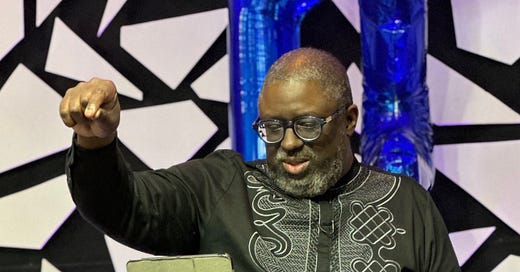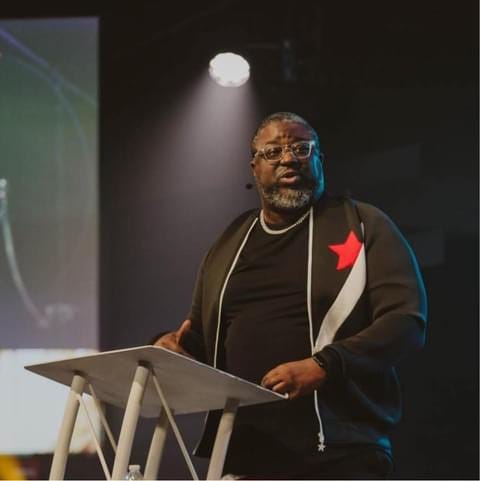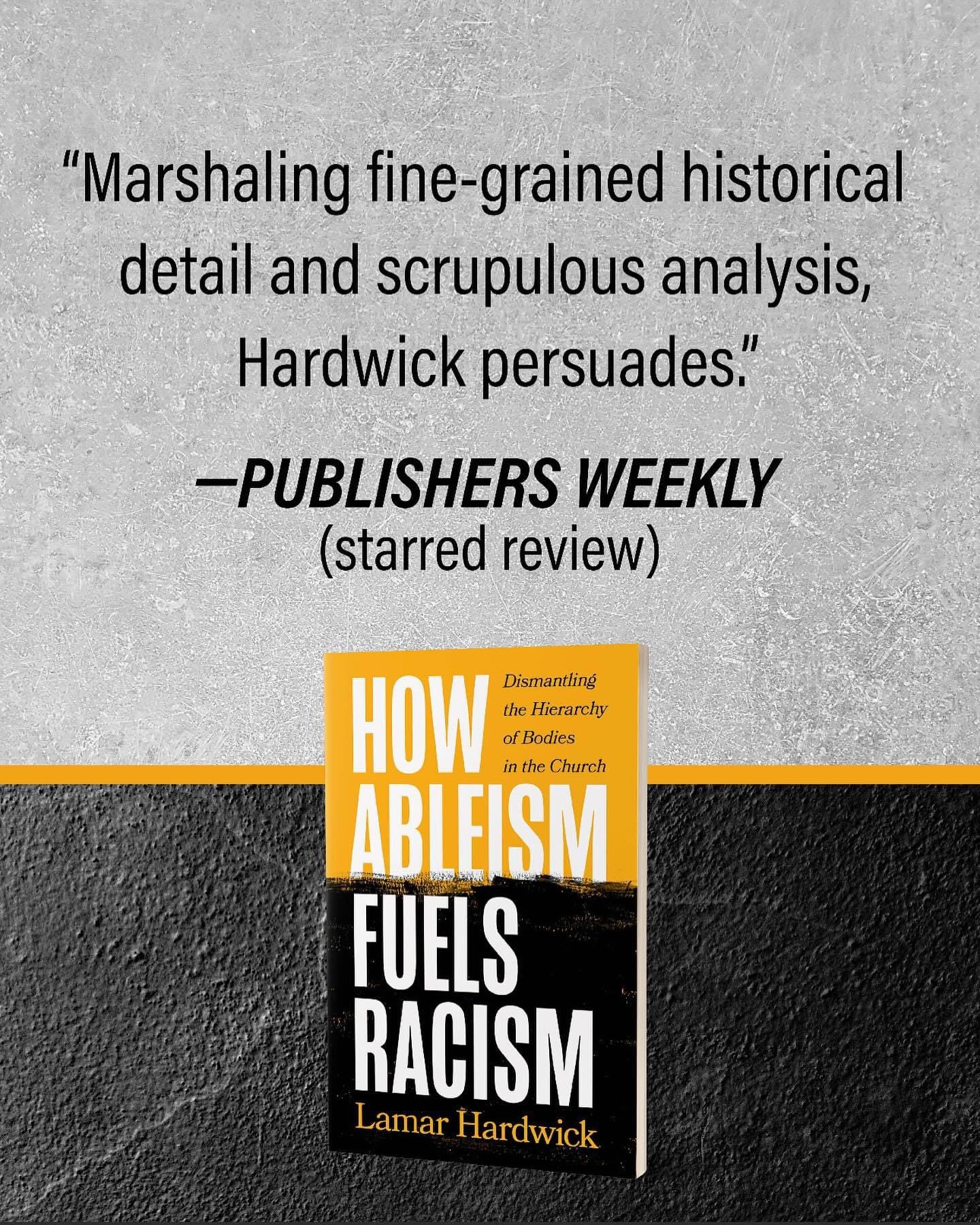A few years ago someone I consider a good friend, asked a question I think about often. His question was simple yet profound.
"What qualifies someone to be the greatest at something?"
Honestly, like most people, my mind immediately wandered into two areas where the argument of greatness normally takes place, sports and entertainment.
While I appreciate a great debate about who is the best athlete of all time in their sport or who is the best rapper of all time, after a few days of not being able to answer the question outside of those two contexts, I was forced to ask myself the question
"No matter what the genre, discipline, or occupation what is the one quality that all great men and women possess?"
In my world, the measure of greatness is much more difficult to assess. As a pastor, author, and disability advocate, greatness is far more subjective than statistics . It is true that over the years the church has subtly succumbed to the seduction of statistics to measure greatness. We have elevated those who have the largest attendance, speak at the most conferences, and sell the most books, but it seems as though that those facts and figures may very well be more of the results of greatness than the measure of it.
I would be disingenuous if I pretended that I did not want to see some of those results myself. I would like to sell more books, and as a pastor I would love to reach more people in my community and to see our church grow, but that's not anywhere near the top of my list of motivations for doing what I do on a daily basis.
Yet, I still want to be great at what I do not for the attention but for the impact. I would love nothing more than one day to be considered one of the G.O.A.T.'s of my generation. (G.O.A.T. Is an acronym for greatest of all time, a term generally used in sports debates)
After several days of trying to answer my friend's question it dawned on me that there is one single quality that describes greatness and it has less to do with results than it does resolve.
Goats are by nature extremely stubborn. G.O.A.T.'s are rebels.
In the book of Judges there is a story of a guy named Jephthah, who despite being born into the world with insurmountable obstacles to face, rose to become one of the greatest Judges in Israel's history. Jephthah was known to be a great warrior, in fact the very first sentence of his story describes him as such but that statement was obviously made in hindsight. No one is born a great fighter, just as no one is born great. Greatness is a designation that is more of a description of what we observe about our athletes, entertainers, and world leaders.
Like many of us Jephthah was born into a precarious situation. His mother was a prostitute which in his day carried negative connotations for both of his parents and for him. In fact, his step brothers ran him out of town and declared that although he was the oldest child, he would never have access to their father's inheritance.
"So Jephthah fled from his brothers and lived in he land of Tob. Soon he had a band of worthless rebels following him." (Judges 11:3 NLT)
Burdened by the fact that he was born into something that he could not control, Jephthah was ousted from his family and his financial future and eventually found himself running with a group of rebels, but it was his team of rebels that catapulted him into greatness.
You see, when Israel eventually found themselves facing a threat that they were not equipped to handle, they had to reverse course on their attitude toward Jephthah and plead with him and his band of rebels to help them fight off their enemies.
"Aren't you the ones who hated me and drove me from my father's house? Why do you come to me now when you're in trouble?'
"Because we need you," the elders replied.
Living with a disability or chronic illness of any kind can be a daunting task. Many times people take for granted the amount of energy and effort that I have to pour into every day and every encounter just to succeed. Like Jephthah I often feel as though I was born into a situation that I can not control and the very nature of my birth often positions me on the outside of society, not physically but socially and many times when it relates to the church, spiritually and theologically.
"In a society where denial of our particular bodies and questing for a better body is "normal," respect for our own bodies is an act of resistance and liberation." -Nancy Eisland
Everyone wants to be great, but no one wants to be different. We want to be what we perceive others are especially if we consider them great. We want to sound like, look like, eat like, drive like, and live like those who are G.O.A.T.'s. We want the results of greatness without understanding the reality that the resolve to be great doesn't come with the desire to conform, G.O.A.T.'s are great because they run with rebels.
Much of my life is spent rebelling systems, thought processes, and procedures that are all designed to work against the way that I was born. I often say that I live in a world that my brain isn't built for. Every system from employment to leadership opportunities leans toward those who have the social significance and stamina that I do not possess. It's a burden, but in that burden was born the seed for being great.
Everyday I rebel against the status quo, which many times challenges both my need for comfort and the felt need to make those around me more comfortable. Often times those with disabilities shoulder the burden of fitting into a world that was designed without us in mind. As a pastor I know this well. It is a sobering reality and yet my response to this reality as it stands is to be a warrior. My response is to be a rebel.
Rebels make great warriors and great leaders because rebels resist reality. Every dreamer and visionary is a rebel who was born with obstacles to overcome, critics to silence, and a call to be a reformer.
Rebels are those who see the world as it is and refuse to believe that we have done enough, gone far enough, and loved enough.
Rebels are liberators. They are lovers of the future and constant critics of the present. They are freedom fighters, those whose mission is to serve those who voices are missing.
Rebels are leaders because they are willing to leave behind the safety of sameness and sacrifice their own lives for the cause of something greater.
The nation needed Jephthah not because he was born a great warrior but rather because he became a great warrior because of how he as born. He was the G.O.A.T. because he refused to accept that he was not acceptable. He was a rebel that led a group of rebels that led a revolution that removed stigma and demolished barriers.
Living with cancer and the toil it has taken on my body and mind is a constant battle for me. Being autistic also comes with it’s fair share of challenges, but perhaps like Jephthah, learning to rebel against the idea that I am not needed or that I am not gifted or that I am not like other people , or that I am weak, or insignificant is what actually makes me the great warrior that I am.
When it is all said and done, when my life is over and when the story of the world that I lived in is recorded in writing, it may not describe me as having the largest church, the most followed blog, the highest book sales, or the most incredible sermons or speeches but what I am aiming for is to be the type of rebel, the type of warrior that inspired others to be rebels.
Shout out to all of my fellow warriors and rebels who show up everyday and refuse to believe that things can’t get better. Don't stop fighting. Don't stop rebelling.
We need you.
Subscribe to my new podcast today







